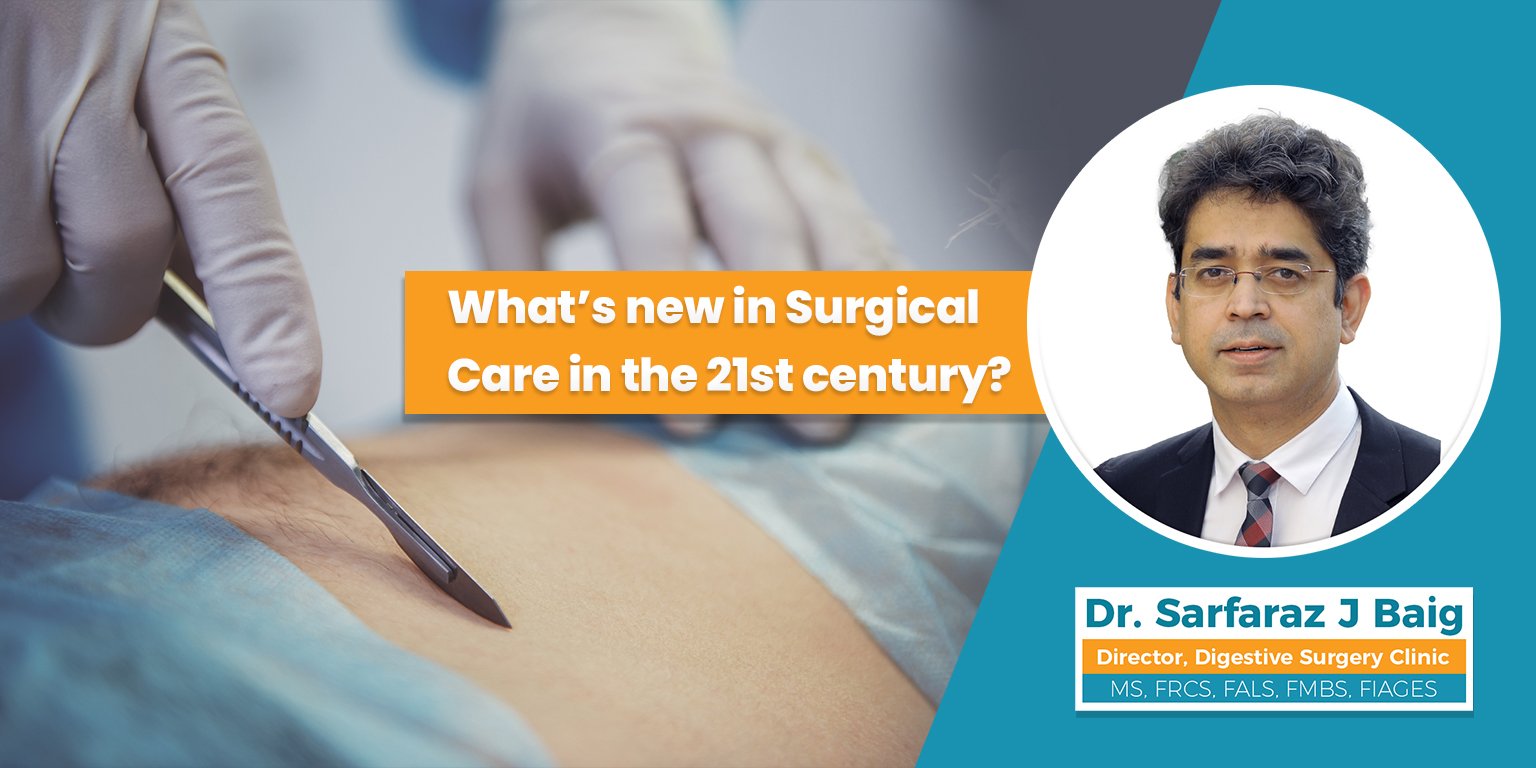
What’s New In Surgical Care In The 21st Century?
It is said that the only constant thing in this universe is change! And as far as the pace of change is concerned, the 21st century takes the cake. In the last two decades, with the advent of internet, the world has changed and even unrecognizable to some old timers!
Here are some of the important changes in the field of gastro surgery that has taken place in this time period-
- Rapid progress has taken place in the the last two decades in the field of computers, internet, telecommunications and artificial intelligence. These have penetrated each and every discipline and has influenced it in a big way. In the field of healthcare, this has led the doctors from around the world to come together on social media platforms to discuss thoughts, cases and problems. This rapid transfer of knowledge and skill has allowed simultaneous and increased treatment pace of progress!
- Teaching and training is fast becoming web based. A lot can be learnt without the need to travel from within the comforts of the house. For instance, one can watch videos on operative procedures and hear world class lectures on YouTube. I have a couple of hundred of videos on operative procedures, lectures with a 1000 subscribers globally!
- Improving vision system has allowed surgeons to perform simple and complex operations in the abdomen by laparoscopic method. Gone are the days of cutting open the abdomen for stones, hernias, infections or even tumors’. All this can be managed by keyhole technique in a dedicated center.
- The way we cut tissues in surgery has also changed drastically. The procedures are becoming increasingly suture less with the advent of modern energy devices. Even the way we cut intestines have changed with instruments such as staplers. Robotics has shown that surgeries in difficult situations can be made easier. These individual technological progress has allowed complex surgeries such as bariatrics (weight loss surgery), transplant and cancer surgery to be easier and even amenable to keyhole technique in certain situations.
- Evidence based science has replaced experience based practice. It is essential to have data and evidence to back up a clinical practice. This is what needs to be done because “I said so” is not acceptable! Large published data are analyzed to influence the way we treat patients. As an example, data from Scandinavian registries have shown that the way we treated large hernias was unsatisfactory and newer techniques such as component separation have been incorporated to improve outcome.
- There is more multi disciplinary approach to diseases than before. Nowadays, a cancer is more likely to get a discussion between surgeons, oncologists, radiologists, pathologists and radiotherapists before handing out a prescription. Even in benign abdominal diseases such as achalasia, hiatus hernia, diverticulitis and pancreatitis, a treatment based on joint collaboration between astrophysical and gastro surgeon is common.
- Attempts are being made to ensure more safety in surgery. And it is not only about improving techniques and incorporating technology. There are a lot of check lists in place to prevent mishaps such as wrong operation, patient misidentification, etc.
- Communications has become a vital part of clinical practice. It is not sufficient to execute a surgical plan for the patient without laying down the details of the treatment, its potential benefits and complications. Consent taking is an art that Surgical Science has had to incorporate!
- This is an era of specialization and even super specialization. Patients are looking for experts in the field. This has led surgeons to focus in their small area of interest and build their knowledge and skill around it. So, you would see dedicated transplant and cancer centers these days where only these treatments take place.
- This final point is what I want my readers to ponder!
More than a century back, Sir William Osler, professor in John Hopkins had emphasized that care of the patient at the personal level is more important than looking at him or her as a disease to treat or a problem to solve.
This is what he believed- “Care more particularly for the individual patient than for the special features of the disease.”
In the world of pace, technology, data entry and objectivity, the human touch in health care seems to have taken a back seat. I strongly feel that a surgeon who takes out time to look into the eyes of the patients, strikes a conversation with a smile and builds a rapport with them, would be a greater attribute to acquire than simply sharpening the skills as a surgeon!




